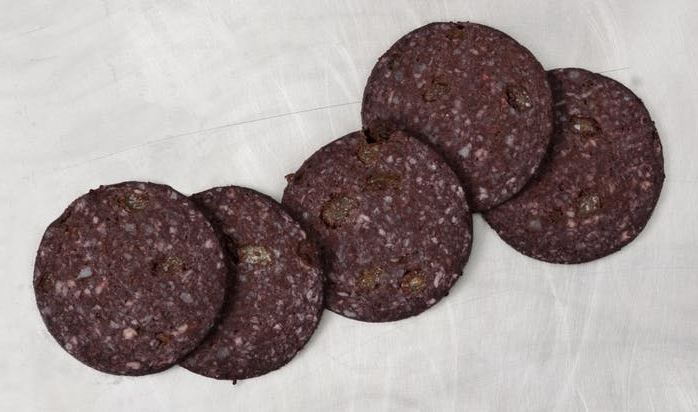
Q: I wonder if it is ok to eat food that has blood in it? What about Acts 15 where the Apostles forbid it and what about blood transfusions?
A: Actually – and this is not well-known – the Orthodox position is that the Apostolic Council is still binding, and this includes the prohibition on eating blood. Two canonical sources which uphold the restriction of Acts 15 are:
Canon LXIII (63) of the Apostles:
If any bishop, or presbyter or deacon or anyone else on the sacerdotal list at all, eat meat in the blood of its soul, or that has been killed by a wild beast, or that has died a natural death, let him be deposed. For the Law has forbidden this. But if any layman do the same let him be excommunicated.
Canon LXVII (67) from the Quinesext Council:
Divine Scripture has commanded us to ‘abstain from blood, and strangled flesh and fornication’ (Gen 9:3-4, Lev 17 & 18:3, Acts 15: 28-29). We therefore suitably penance those who on account of their dainty stomach eat the blood of any animal after they have rendered it eatable by some art. If therefore anyone from now on should attempt to eat the blood of any animal in any way whatsoever, if he be a clergyman, let him be deposed from office; but if he be a layman let him be excommunicated.
The great Orthodox canonists (Zonaras, Balsamon) have reaffirmed the applicability of these canons.
This prohibition on eating blood has however never been understood as a strict prohibition on the use of blood transfusions in case of medical emergency. It is notable that Orthodox Jews and Muslims who are very strict on eating blood do not also extend the restriction to indispensable medical use. However, it can safely be said that Orthodox Christians should reject the greed and corruption sometimes exposed by the media in relation to the blood transfusion (and organ donation) business. Recent changes, allowing a person to store his own blood or to receive the blood of a compatible relative or friend, have been helpful in curbing the problem of corruption in the blood supply industry.
